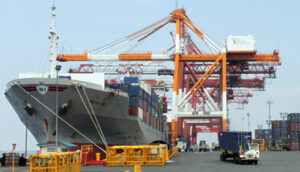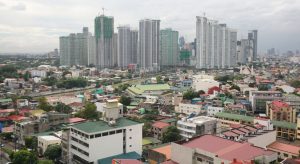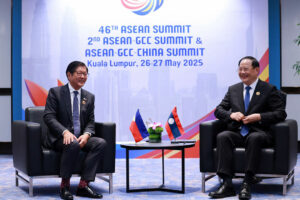With dust from the elections settled and a state executive revamp down to bureau/agency level under way, newly seated officials will hopefully lose no time turning their attention to development tasks at hand.
One nagging imperative that bedevils the bureaucracy at all levels is corruption — everyone’s favorite punching bag but against which we seem to be making little headway. So much has been said about this problem (I look forward to Pablo Virgilio S. Cardinal David’s keynote on this issue at the Aug. 13 general membership meeting of the Management Association of the Philippines, or MAP), and yet months that pass add new dimensions and new perspectives to discussions.
Among others: casual conversations with members of various business groups on this matter bare one common observation: bribery that they personally have encountered has worsened over the past few years.
Chances are that many of us have been inured to not just the sight of but also to inconvenience caused by this disease, from substandard roads to poorly delivered public services.
In a way, I am glad that younger generations seem less resigned to grin and bear it whenever they encounter government inefficiency and/or petty corruption, not least due to the wider perspective (i.e., comparison with neighbors) they have gained from social media and other internet platforms they frequent. The apparent activism displayed by the youth in the recent mid-term polls may signal what could be a hopeful shift towards more discerning voter choices. Putting more qualified folks in office is key to improving our competitiveness as a country in terms of governance, compared to peers like Indonesia and Vietnam.
NOT ENOUGHIt will take quite some time before better choices of officials yield better policies and improved implementation/enforcement, but the fact that multilateral lenders and private sector groups at home have long flagged corruption — which gnaws at governance — as a key concern means there can never be enough improvements on this front… and the sooner, the better.
The International Monetary Fund, in its last annual health check on the Philippines (Article IV Staff Report), published in December last year, had cited the need to prioritize “efforts to reduce corruption” in order to close the country’s gaps with its Southeast Asian peers in terms of governance. This focus — coupled with “comprehensive reforms,” as well as better energy, transport and digital infrastructure — can be expected to “support higher investment and productivity,” and “significantly boost real GDP growth,” according to that report.
Groups like the Philippine Chamber of Commerce and Industry and the MAP have consistently flagged corruption as a key hurdle for doing business in the country, despite laws like Republic Act No. 3019, or the Anti-Graft and Corrupt Practices Act, and RA 6713, and the Code of Conduct and Ethical Standards for Public Officials and Employees, among others.
There are several government and private sector initiatives to imbue strategically placed officials with proper values, but many who take part in such undertakings easily slide back to old habits as soon as they resume the daily grind. Faced with their relapse, it’s almost instinctive to roll one’s eyes at the mere mention of “values formation.”
But perhaps the problem lies more in the general lack of a system that will both encourage perseverance in values needed to govern well as well as stop backsliding. Which is why the likes of Baguio City Mayor Benjamin “Benjie” B. Magalong and Pasig City Mayor Victor Ma. Regis “Vico” N. Sotto have focused on fixing procurement and other governance systems in their localities. In a television interview, Mr. Sotto cited the need for a system that would make it more attractive to do right and automatically distasteful (or costly) to engage in bribery.
Local reformers like these gentlemen are on to something, because it will take both carrot and stick to hammer governance principles into officials and to make these stick.
IN PLAIN SIGHTTake Vietnam for example, which has been besting the Philippines in investment and various development metrics: it has been waging an unrelenting anti-corruption drive that has seen top/key personalities fall, including a president, some ministers, vice-ministers, and businessmen.
While that communist-run country lacks the civic space to allow the public to call erring officials to account, Vietnam outdid the Philippines in the 2024 Corruption Perceptions Index that placed the former 88th out of 180 countries and the latter at 114th. That index ranks countries yearly in terms of levels of public sector corruption as perceived by experts and businesspeople. To be sure, both the Philippines’ and Vietnam’s scores of 33 and 40, respectively, on a scale of 0 (very corrupt) to 100 (very clean) fall short of averages of 43 for the world and 44 for Asia and the Pacific. But the Philippines has shown a gradual — if erratic — decline in its score since 2014, when the country posted an all-time-high 38 points and placed 85th out of 175 countries ranked then.
There are enough studies directly linking corruption perception to foreign direct investment levels*, hence the need for us to match, if not beat, our competitors on this count.
Signs of corruption abound — from jeepneys plying roads at night with busted headlights, to smoke-belching public transport vehicles, to drivers who do not seem to know basic traffic rules (and killing pedestrians, bystanders, commuters, or other motorists at times), to substandard/poorly maintained roads and bridges, to simple road repairs inexplicably left unattended for weeks/months, to duplicate/redundant street signs, to primary suspects eluding arrest during raids on scam hubs, etc. Any one of these symptoms is like that lone cockroach or termite one finds on the kitchen counter at night: where there’s one in plain sight, there are hundreds of others scurrying in the dark.
Take the unending reports of birth certificates, drivers licenses, passports, and other official documents issued illegally to foreign criminals. Nearly a year since the revelation that over 1,000 birth certificates were issued to foreigners in 2018-2019 in the Davao region, news reports since last week told of at least two other foreigners who were arrested with Philippine driver’s licenses, birth certificates and other government documents.
Gosh, how many more of these people are out there?
This problem not only undermines our citizenship system but also erodes the integrity of government documents both domestically and abroad to the detriment of Philippine nationals, and could pose national security risks besides. Has anyone been charged here?
MAKE IT TOO COSTLYWhy not make an example of government personnel and officials who signed off on these illegally issued documents? Their signatures are all over the paperwork leading to the final certificates, so why not trace how deep/high the rot goes?
One need not name them publicly until they are dismissed from service and face cases in court. But isn’t it high time to force these bureaucrats to do their jobs properly (the image of a lazy corrupt clerk or supervisor waiting for his/her take for the day comes to mind) instead of mechanically and unmindfully (or worse) signing such documents?
Make it just too risky/costly for anyone to take part in such schemes, even if inadvertently (innocent but inept ones will be cleared by investigations eventually anyway).
This step may sound simple, even insignificant, compared to the whole gamut of graft and corruption across the country. But it is a good way to step up anti-corruption efforts and, at the same time, benefit the transacting public.
The question is: why don’t we hear more of this sort of simple clampdown happening? Are state managers blind, plain lazy, are they looking for dragons to slay in the corners of their offices, or are some of them actually involved themselves?
Do such small steps work? Of course they do! I recall conversations decades ago at a bribery-ridden bureau whose officials and agents held off acquisition of new properties (a new car here, a new house there) due to a stepped-up lifestyle check ordered by the top boss that time. A genuine no-nonsense drive against petty graft and corruption will produce the desired change in behavior if sustained.
But there’s the rub: the top boss has to set the tone and secure management buy-in. Otherwise, such campaigns won’t be credible, not only to the public but to government rank and file as well.
How high can such crackdowns go?
It turns out that there is an obscure executive order (EO) that defines “command responsibility.” Executive Order No. 226, issued by the late former president Fidel V. Ramos in February 1995, imposed this accountability system on “all government offices, particularly… all levels of command” in the police and other law enforcement agencies (the first time the doctrine of “command responsibility” was codified in this country, unless I am mistaken).
“Any government official or supervisor, or officer of the Philippine National Police (PNP) or that of any other law enforcement agency shall be held accountable for ‘neglect of duty’ under the doctrine of ‘command responsibility’ if he has knowledge that a crime or offense shall be committed, is being committed, or has been committed by his subordinates, or by others within his area of responsibility and, despite such knowledge, he did not take preventive or corrective action either before, during, or immediately after its commission,” that order reads in part.
The same order provides that “[a] government official or supervisor, or PNP commander, is presumed to have knowledge of the commission of irregularities or criminal offenses… when the irregularities or illegal acts are widespread in his area of jurisdiction… have been repeatedly or regularly committed within his area of responsibility, or… when members of his immediate staff or office personnel are involved.”
The Civil Service Commission was supposed to have come out with its rules and regulations implementing this EO in all government offices. At the same time, a few measures that sought to clearly apply the coverage of this order to other government offices failed to make it out of Congress.
This is like many other problems in this country: there probably are laws already in place to address them… it’s just that enforcement sucks or is plain non-existent. And that omission speaks volumes about the administrators in place.
Small steps like this one may not be headline-grabbing, but they do strike fear where governance values meet resistance.
And, provided these efforts are not ningas kugon (a flash in the pan), they should improve public services.
* Check out, for instance: Agnes Bénassy-Quéré, Maylis Coupet & Thierry Mayer, “Institutional Determinants of Foreign Direct Investment,” Centre for Prospective Studies and International Information, April 5, 2005; Mohsin Habib & Leon Zurawicki, “Corruption and Foreign Direct Investment,” Journal of International Business Studies, June 1, 2002; and Shang-Jin Wei, “How Taxing is Corruption on International Investors?” The Review of Economics and Statistics, Vol. 82, No. 1, The MIT Press, February 2000.
Wilfredo G. Reyes was editor-in-chief of BusinessWorld from 2020 through 2023.


















